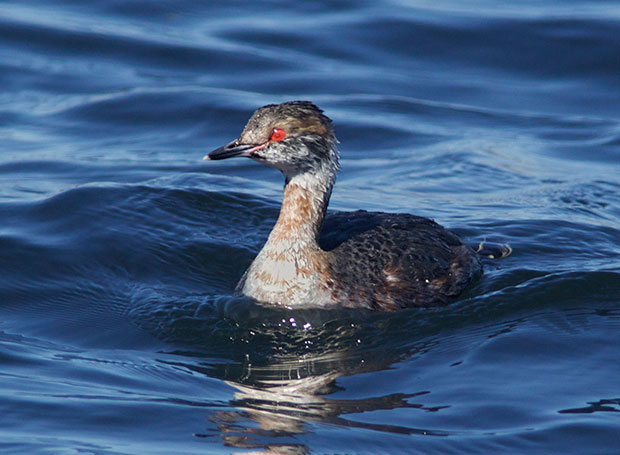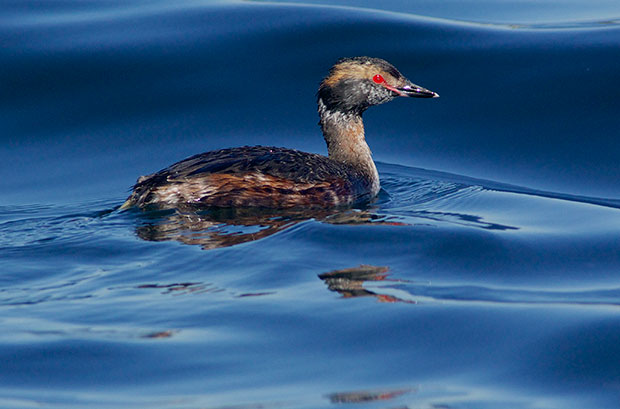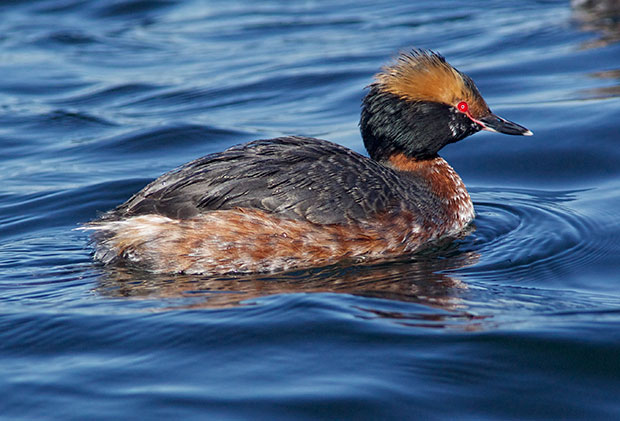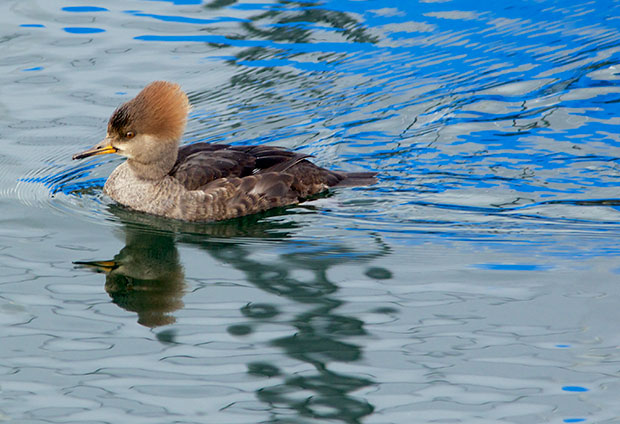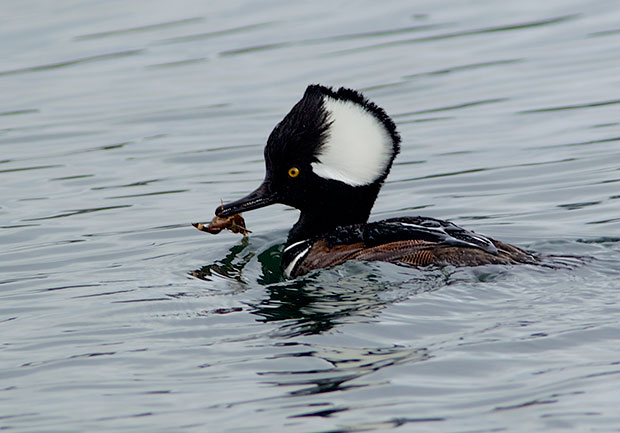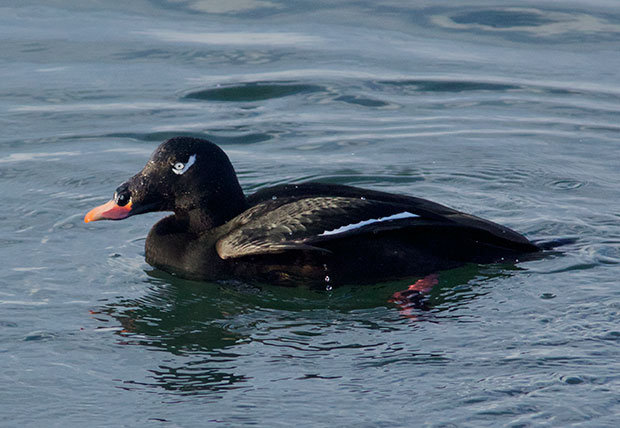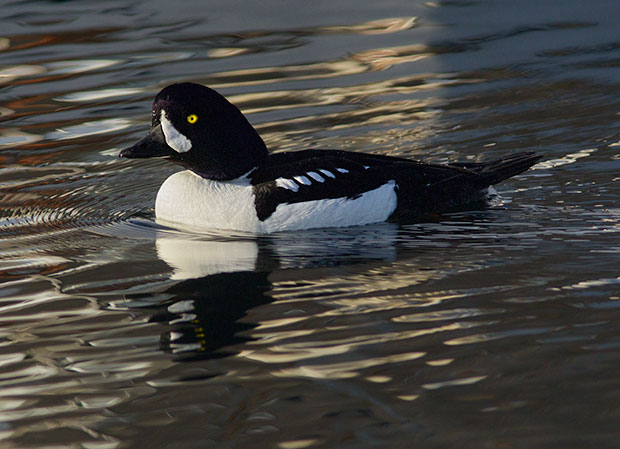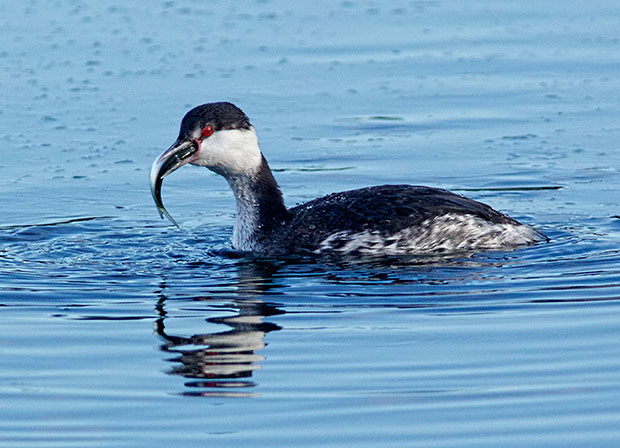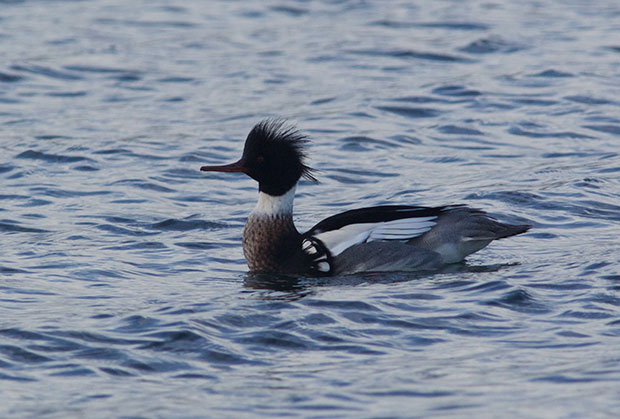Although I was disappointed that had to delay my trip to Malheur for a week, I was glad that I got another week to photograph the Horned Grebes at Port Orchard because I’ve watched them change plumage the last few weeks.
I was so amazed when I saw the transformation a few years ago, that watching them change has become a rite of Spring for me. In the winter they’re a rather nondescript little gray and white bird, one of the smaller members of the grebe family.
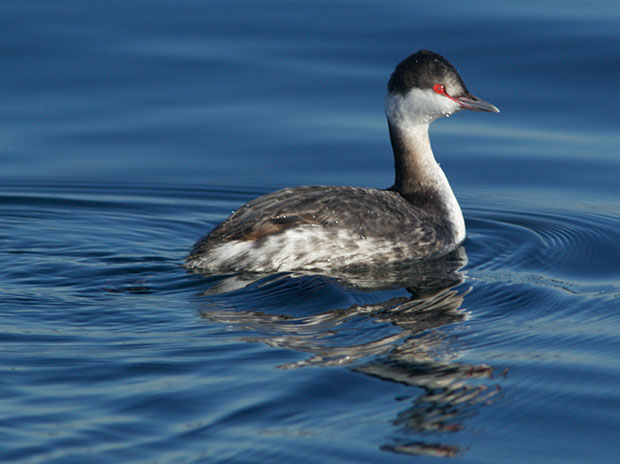
Come Spring, though, and they transform into a remarkably striking bird that makes it clear why they were name the Horned grebe. It seems to take three to four weeks to change from their winter plumage to their breeding plumage.
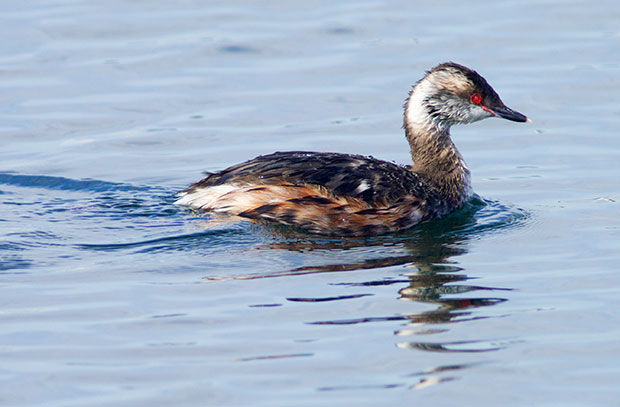
Until they complete the transformation, they can look quite motley and judging from the amount of preening they do, it can be quite irritating.
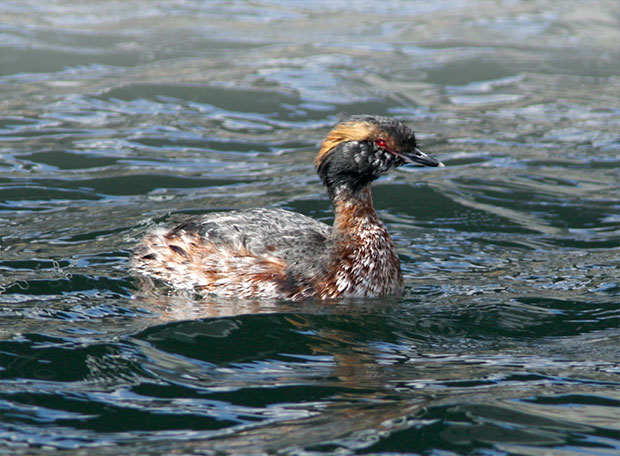
The result certainly justifies whatever discomfort the change might entail.
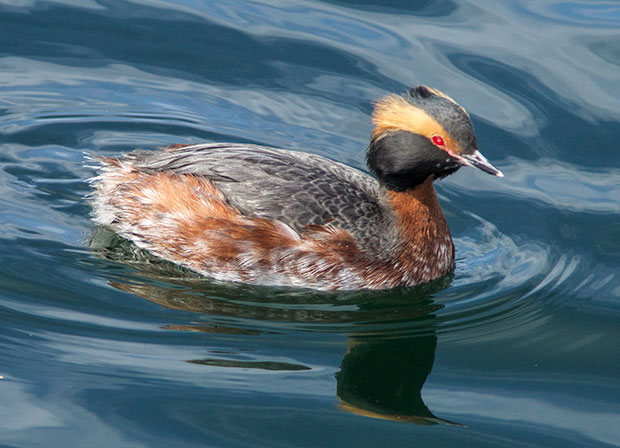
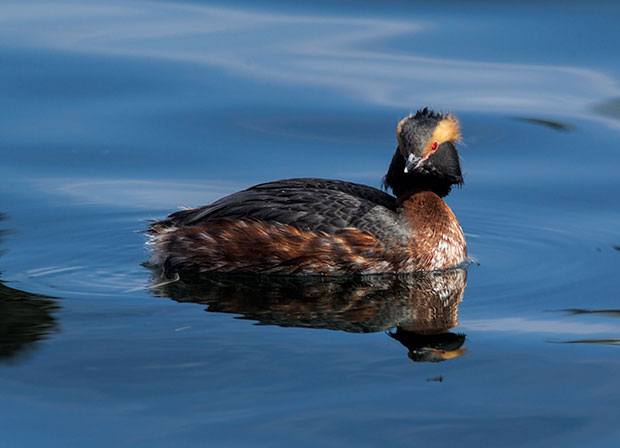
I’m not sure the transformation is quite complete, but I doubt that they will still be around when I return in a week. They seem to leave for their nesting area almost immediately after the change so I only have a short amount of time to enjoy them.

